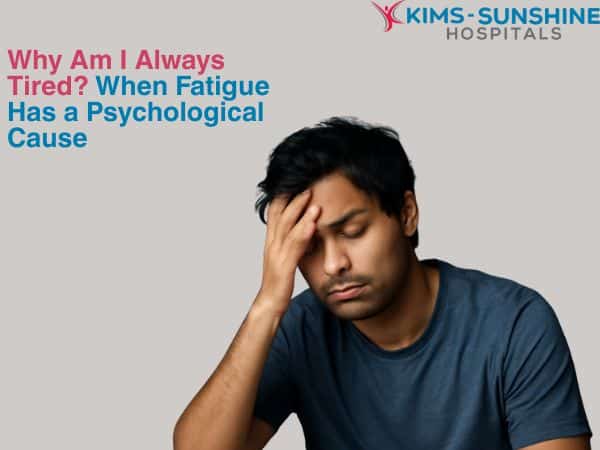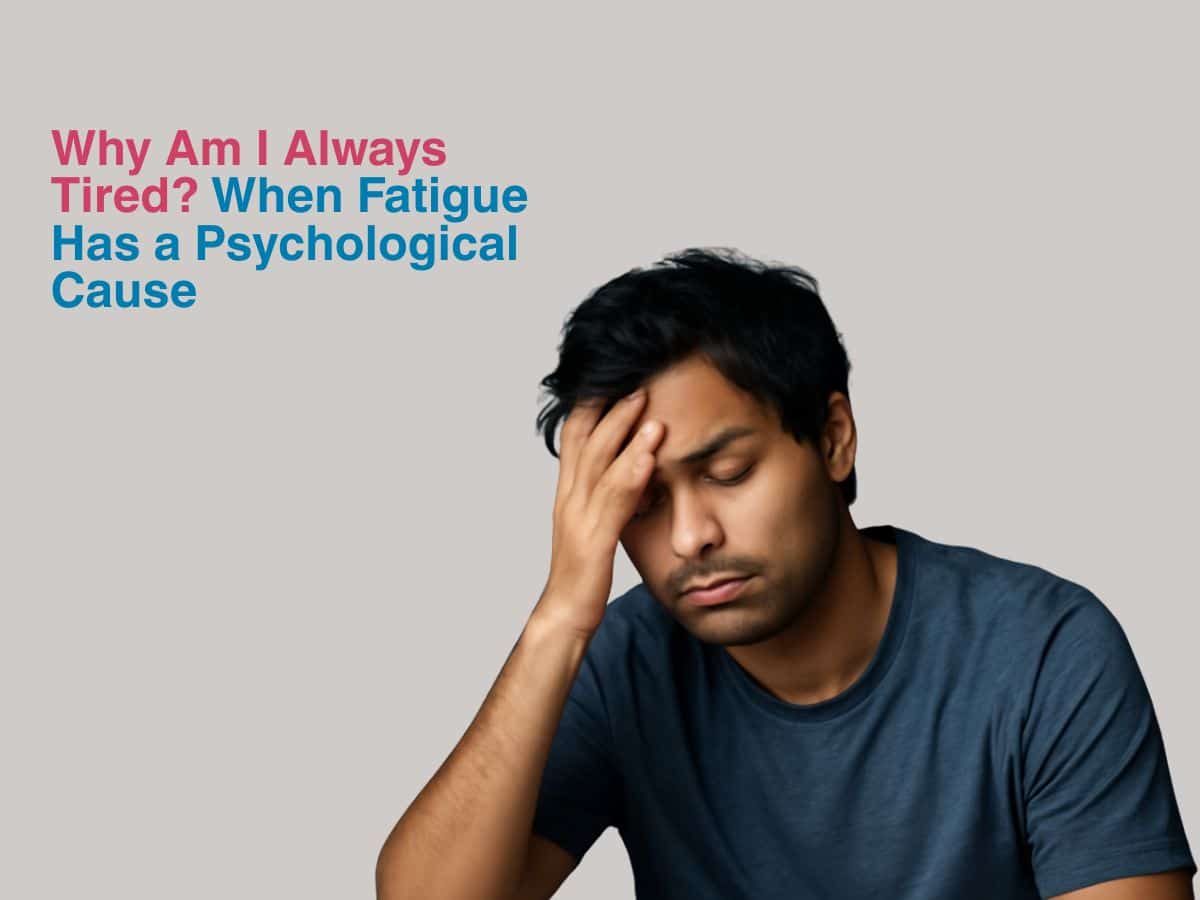
Why Am I Always Tired? When Fatigue Has a Psychological Cause
There is a kind of tiredness that sleep cannot cure. You lie down hoping for rest, and wake up with the same fog hanging above your head. Your bones do not ache, but your soul feels thin, like old cloth pulled too many times in too many directions. So you ask yourself, again, and again, why am I always tired? But the blood test results are fine. The scans show nothing. You are not sick and yet, you are never well.
Why Am I Always Tired but Not Sick?
It’s a maddening thing to seek an answer in the body and find none. You drink more water. You sleep more hours. You add iron, subtract caffeine. Still, the weight clings.
This is where many miss the turn: they look outward when they ought to look inward, for tiredness does not always begin with broken bones or weak muscles. Sometimes, it grows from unspoken pressure, from stress held in the jaw for too long or from thoughts that repeat themselves in endless loops.
Psychological Causes of Constant Fatigue
Unresolved anxiety, chronic stress, grief left unprocessed, the grey drift of depression – all these can slow the body without ever causing a fever. This fatigue isn’t sudden. It accumulates. One cancelled plan becomes a pattern. Over time, the nervous system stays alert even when you sleep, like a night watchman who never clocks out.
Common psychological causes of constant fatigue include:
- Generalised anxiety disorder
- Depression (often unrecognised)
- Post-traumatic stress
- Burnout from prolonged work or caregiving
- Chronic emotional suppression
Can Mental Health Issues Cause Tiredness?
Absolutely and perhaps more often than we admit.
Mental health does not affect the mind alone. It is not sealed off from the neck down. It courses through your digestion, affects your immune system, alters your sleep cycles and when the mind is at war with itself, the body is drafted into battle too.
The simplest tasks begin to feel mountainous. You feel both restless and drained. Sleep offers little sanctuary. To dismiss this as “just in your head” is not only cruel, it is wrong. The mind and body are not neighbours. They are family. What wounds one, weakens the other.
Signs Your Fatigue Is Mental, Not Physical
There is no single symptom. But there are patterns. Here are some quiet signals that your tiredness may be more emotional than organic:
- You sleep long, but feel no refreshment
- You experience heaviness in the body without specific pain
- Motivation feels extinct, even for tasks you once enjoyed
- You feel foggy, forgetful, or slowed in your thinking
- Rest does not restore you, mentally or physically
- You’re withdrawing from people without knowing why
Conclusion
If you’ve been asking “why am I always tired?” and find no answer in your body, it may be time to ask the question elsewhere. Speak to someone – a therapist or a friend who listens well. Sometimes the cure begins not with medicine, but with the kind of conversation that softens the chest and loosens the jaw. Tiredness is not a flaw. It is a message. May you find the courage to read it, and the kindness to respond.







